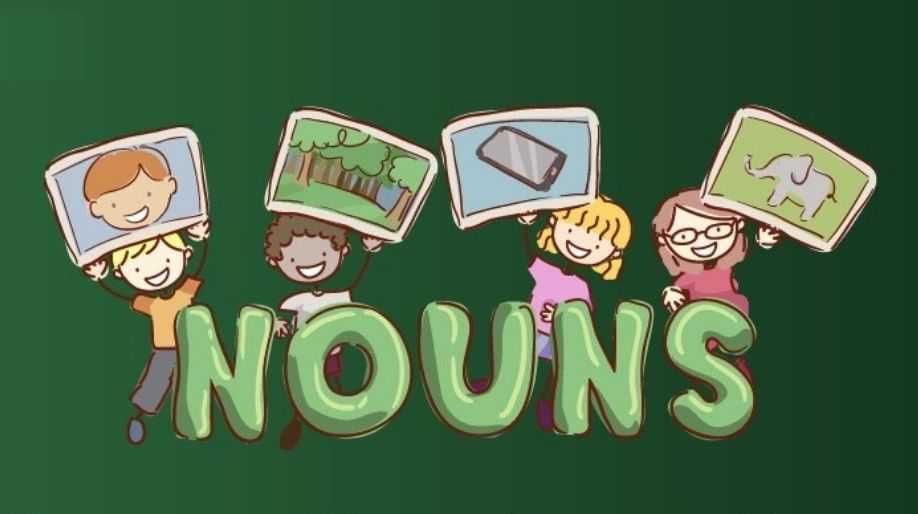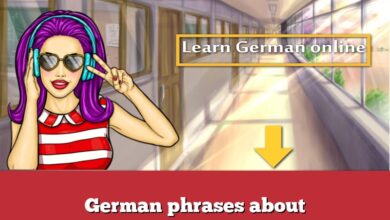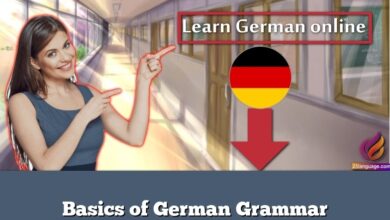Nouns in German

Nouns in German.Representing people, places, things, and ideas, nouns are essential in conveying the specifics of our thoughts, stories, and everyday conversations. Whether it’s the name of a beloved pet, a cherished memory’s location, or an abstract concept like love or freedom, nouns give substance to our linguistic expressions.

Explanation about Nouns in German
1. Capitalization
In German, all nouns are capitalized, regardless of their position in a sentence. This is a unique feature compared to many other languages, including English.
Example: Der Hund spielt mit dem Ball. (Translation: The dog is playing with the ball.)
2. Genders
German nouns have three genders: masculine (der), feminine (die), and neuter (das). Determining the gender of a noun can be tricky, but there are some general rules and patterns (though there are exceptions).
- Masculine: Often nouns referring to male people or professions, like “Mann” (man) or “Lehrer” (teacher).
- Feminine: Often nouns referring to female people or professions, like “Frau” (woman) or “Lehrerin” (female teacher). Many nouns ending in “-ion”, “-heit”, or “-keit” are also feminine.
- Neuter: Often nouns formed from infinitive verbs, like “Essen” (eating/food) or nouns referring to young people or animals, like “Mädchen” (girl) or “Kätzchen” (kitten).
3. Plurals
Creating plurals in German can be a bit complex. Depending on the noun, the plural might be formed by adding “-e”, “-en”, “-er”, “-s”, or sometimes no ending at all. Umlaut changes (adding ä, ö, or ü) can also occur.
Example:
- Buch (book) becomes Bücher (books)
- Frau (woman) becomes Frauen (women)
4. Cases
German nouns change their form depending on their function in a sentence. There are four cases:
- Nominative (Subject): Der Mann liest ein Buch. (The man is reading a book.)
- Accusative (Direct Object): Ich sehe den Mann. (I see the man.)
- Dative (Indirect Object): Ich gebe dem Mann ein Buch. (I give the man a book.)
- Genitive (Possessive): Das Buch des Mannes. (The man’s book.)
5. Compound Nouns
German is known for its compound nouns, where two or more nouns are combined to form a new noun.
Example:
- Handschuh = Hand (hand) + Schuh (shoe) = glove
Sentenses for using Nouns in German
| German Noun | German Example Sentence | English Translation |
|---|---|---|
| Hund (dog) | Der Hund bellt. | The dog barks. |
| Tisch (table) | Der Tisch ist rund. | The table is round. |
| Buch (book) | Ich lese das Buch. | I am reading the book. |
| Stadt (city) | Die Stadt ist groß. | The city is big. |
| Wasser (water) | Das Wasser ist kalt. | The water is cold. |
| Blume (flower) | Die Blume duftet schön. | The flower smells nice. |
| Fenster (window) | Das Fenster ist offen. | The window is open. |
| Freund (friend) | Mein Freund heißt Tom. | My friend’s name is Tom. |
| Sonne (sun) | Die Sonne scheint hell. | The sun shines brightly. |
| Auto (car) | Das Auto ist schnell. | The car is fast. |
In conclusion, nouns are not just mere words we deploy in sentences; they are the pillars upholding the weight of our language, culture, and history.”





























